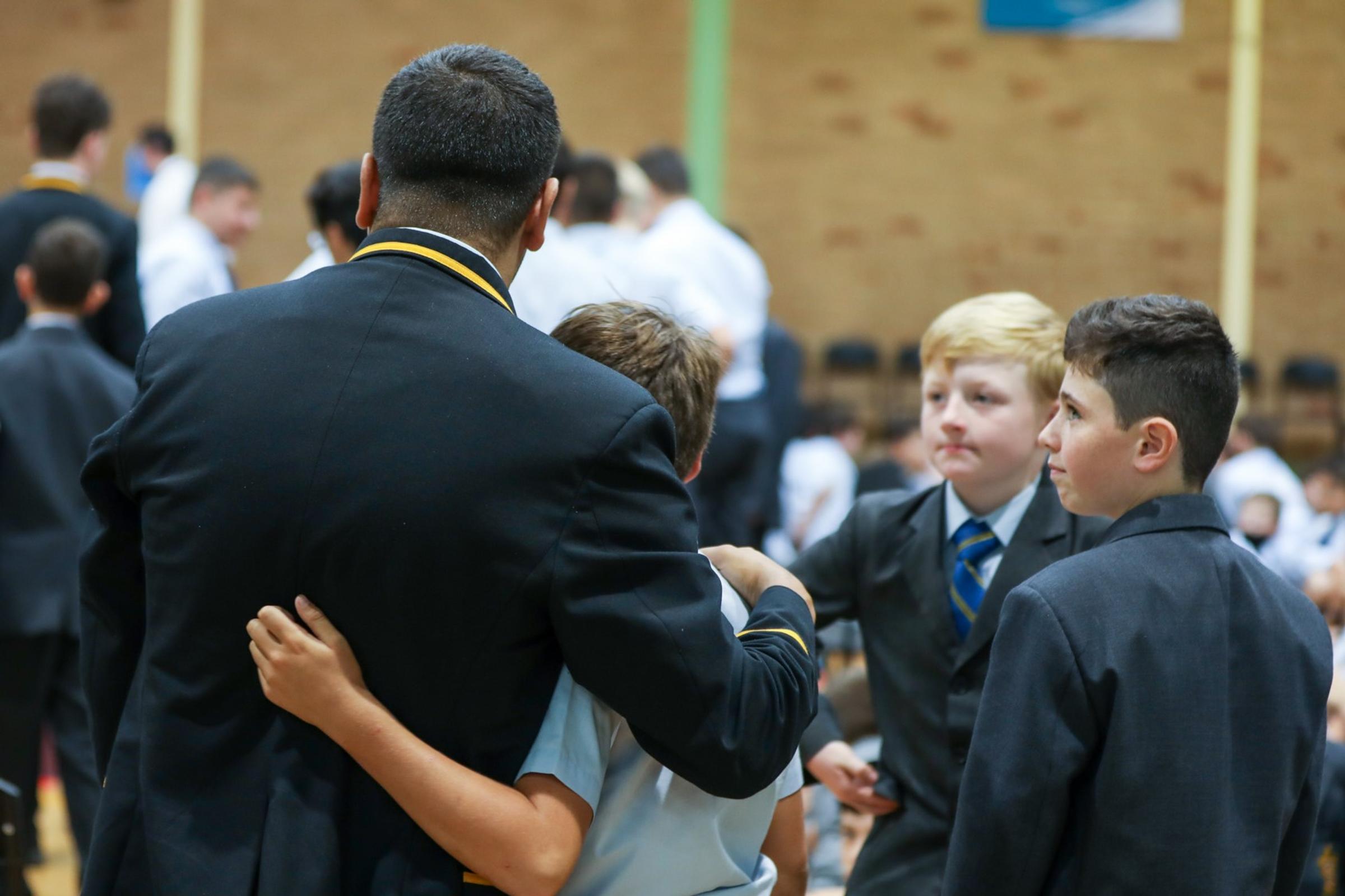Wellbeing

Wellbeing
I take this opportunity to welcome all students back to the College for Term 2; I trust that boys and their families enjoyed a restful break. As always it will be a busy period and boys are encouraged to ensure that they have a clear understanding of when significant College and cohort events are occurring. Utilising the Planner on pages 176-177 of the Student Diary is recommended.
Year Coordinators have been advising students to complete the Reflection Page for Term 1 Goals (College Diary p.59) and Term 2 Goal Setting (College Diary p.84). Parents/carers are reminded that they should be checking the goal setting pages, signing in the space provided at the bottom of the page.
As a parent of two secondary school age students, I was amazed at their holiday sleep patterns - both would often drag themselves out of bed closer to midday, often after repeated prompting. I’m sure this is a pattern that many parents/carers would have encountered themselves. It prompted me to do some investigation to better support both of my children; I provide below some links to webpages from the Generation Next site that may be useful for both parents/carers and students alike.
https://www.generationnext.com.au/2018/09/4-ways-to-help-teens-get-more-sleep/
https://www.generationnext.com.au/2018/10/behavioural-sleep-problems-in-school-aged-children/
COMPULSORY SCHOOL ATTENDANCE: Information for Parents and Carers
Did you know that if your son attended St Patrick’s College between Years 5-12 and missed as little as eight days in a school term, by the end of their time at the College they will have missed over a year of education?
In New South Wales, all children from six years of age are legally required to attend school or be registered for home schooling. After they complete Year 10 and until they turn 17 years of age, students then have the following options. They may also be in:
- full-time further education and training (e.g., TAFE, traineeship, apprenticeship)
- full-time, paid employment of an average of 25 hours per week
- or a combination of both the above.
Children are expected to attend all College activities, on time. If your son must be absent from the College, you are required to inform the College and provide a reason for your son’s absence within seven days. A small number of absences may be accepted; for example, if your son has to go to a special religious ceremony, is required to deal with a serious and/or urgent family situation, is too sick to go to school or has an infectious illness. Ordinarily, it is expected that your son will have at least 90% attendance each year.
When absences are unexplained by parents/carers, or the explanations are unacceptable, the College will work with parents/carers to help address the issue. The main aim is to sort out what is preventing the child from getting to school and putting strategies in place to help.
Sometimes, the College will ask support staff and other agencies to assist. It is important to understand that further action will be taken where students of compulsory school age have recurring numbers of unexplained or unacceptable absences from the College. Some of the following actions may be undertaken:
- Attendance meetings and compulsory attendance conferences. The aim of the meeting/conference is to help identify strategies to support the boy and family. Other agencies may also be invited along to help if parents/carers agree. The outcome of an attendance meeting/compulsory attendance conference is for the parties to agree to undertake certain actions to improve the boy’s attendance. These actions are written in the form of undertakings.
- Applications to the Children’s Court. A Compulsory Schooling Order Legal compliance can be sought through an application to the Children’s Court for a Compulsory Schooling Order. The aim is to assist a family and/or boy to address the issues which are preventing satisfactory school attendance but has the added enforcement of a Court’s powers.
- Prosecution in the Local Court. If all attempts by the College and regional support staff fail to improve a student’s attendance, action can be taken in the Local Court and the result can be fines up to a maximum of $11,000.
Adapted from Student Attendance at http://www.cecnsw.catholic.edu.au
Robert Simpson
Director of Wellbeing
